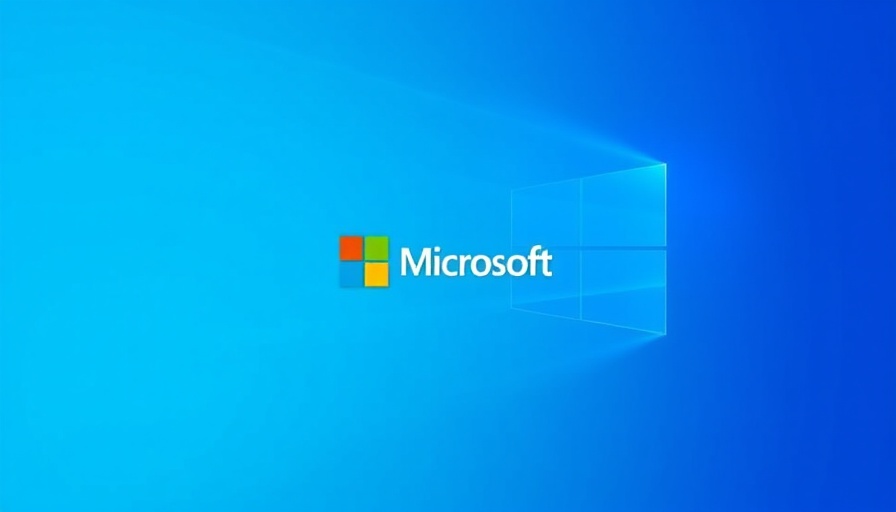
Microsoft's Shift: Ending Free VPN Service
In a strategic pivot, Microsoft will discontinue the free VPN service included with Windows Defender effective February 28, 2025. This decision raises significant questions about the future of data privacy features integrated into widely-used software products. As some users may have come to rely on this feature for enhanced online privacy, the removal emphasizes a broader trend toward streamlining services to focus on core functionalities.
Understanding the Reason Behind the Removal
According to an unnamed Microsoft employee, the VPN's removal comes as part of their effort to “align to customer needs” more effectively. This move suggests that the VPN struggled to gain traction among users, particularly because it lacked flexibility, such as the ability to select a server location. This essential feature is vital for those seeking to bypass geographic restrictions on media streaming services—one of the most common reasons for using VPN technology.
Revisiting Data Privacy Features in Software
As digital transformation continues to influence business practices, the role of data privacy is paramount. The withdrawal of this VPN highlights an underlying shift: companies must ensure that their product offerings meet market demands. It compels leaders of fast-growing companies to reassess their digital tools and consider how foundational features can meet customer expectations without adding unnecessary complexity.
Impact on Microsoft 365 Users
For Microsoft 365 subscribers, the removal of the VPN will be automatic, and they will not need to take any further action—though users on Android devices have the option to remove the VPN profile. The immediate focus appears to be on the security benefits that Microsoft Defender continues to offer, which include data and device protection, credit monitoring, and identity theft alerts. However, with the recent price increase for Microsoft 365 subscriptions, which now includes added features like the Copilot AI assistant, users are left to question the value of the remaining services.
The Future of VPN Technology
This development aligns with broader industry trends, where leading tech firms are continually refining their product portfolios. As corporations navigate the complexities of cybersecurity and consumer expectations, resources usually allocated for underperforming services might shift toward developing more compelling and user-friendly solutions. Companies within the technology sector must enhance their understanding of targeting specific consumer needs, as demonstrated by Microsoft's recent price adjustment.
Examining Consumer Choices: Free VPN vs Paid VPN
The termination of Microsoft’s free VPN could shift consumer interest back toward premium VPN services, which often provide more features and customized options to enhance digital security. Understanding the differences between free and paid VPNs is crucial for businesses that prioritize privacy. Companies may find that incentivizing employees to use secure, paid VPNs alongside other cybersecurity measures enhances overall safety in a growing hybrid work environment.
Ultimately, the removal of Microsoft's VPN signals a significant shift in how technology companies assess and prioritize features within their products. As businesses navigate the complexities of digital transformation, understanding the landscape of privacy tools becomes paramount.
 Add Row
Add Row  Add
Add 




Write A Comment